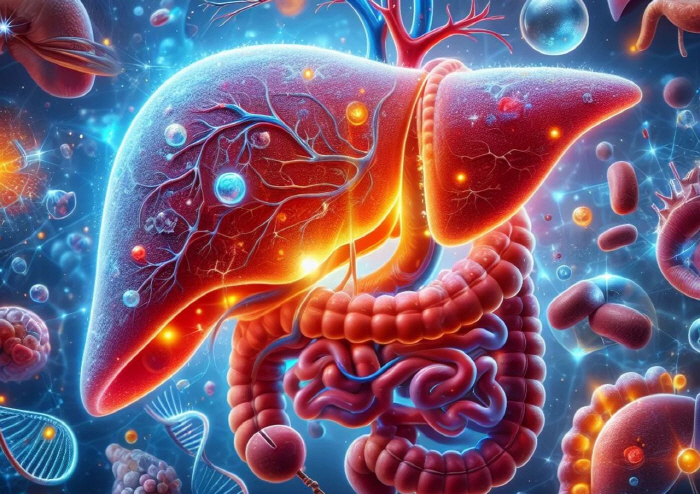Development of a precise prediction model for prognosis and survival rate of colorectal cancer liver metastasis patients with AI
Mar 31, 2025
|
Professor Choi Seung-joon of the Department of Radiology at Gachon University Gil Hospital has developed a model that can predict the treatment response and survival rate of patients with colorectal cancer liver metastases (CRLM) using artificial intelligence-based machine learning 'Radio Mix Model'.
The treatment response of patients with conventional colorectal cancer liver metastasis is in accordance with the criteria for evaluating solid tumor response (RECIST 1.1)'. This is mainly evaluated by focusing only on changes in tumor size. Therefore, there were limitations that did not sufficiently reflect the complex changes inside the tumor except for the tumor size.
The 「Radio Mix Model" developed by Professor Choi Seung-joon's team can analyze minute changes in tumors and examine the tumor's response more precisely. In addition, through this, it is possible to accurately predict the survival rate of patients. All of these processes are analyzed through machine learning algorithms based on quantified MRI data.
The subjects of the study were a group of small colorectal cancer liver metastasis patients who received targeted chemotherapy and were unable to perform surgical resection. The research method consisted of three MRI scans before and after treatment.
As a result of the analysis, the accuracy of predicting tumor response of the radio mix model was 76.5%, and the area under the receiver operating characteristic curve (AUROC), an indicator of diagnostic performance, was 0.857 (95% confidence interval: 0.605-0.976, P<0.001), showing high reliability.
This is significantly higher than the curved area value of the solid tumor response evaluation criteria model, which is the conventional tumor response evaluation criteria, which means that AI-based models can predict treatment responses more precisely. Curved area (AUROC) is a representative indicator of artificial intelligence performance evaluation, meaning that the closer to 1, the higher the accuracy.
In addition, the research team analyzed the survival rate of patients based on the tumor response results predicted by the 'Radio Mix Model'.
As a result, the median overall survival (95% confidence interval) of the patient group classified by the Radiomix model into the 'non-progressing' group was 17.5 months. On the other hand, the median survival period of the 'disease progression' group was found to be 14.8 months (95% confidence interval). In other words, the survival rate analysis of patients based on the radio mix model was also accurately performed.
Professor Seung-Jun Choi said, "This study suggests the possibility that AI-based radio mix models will predict the treatment response of patients with colorectal cancer liver metastasis early. Future large-scale research will further refine the model and contribute to establishing customized treatment strategies."
He then added "The results of this study are expected to increase the possibility of precision medical application for cancer patients and to be used as important data for establishing effective treatment plans."
The results of this study were recently published in the Korean Journal of Clinical Oncology.
Meanwhile, the blood-rich liver is a metastatic organ that is common in colorectal cancer patients.
Colorectal cancer, the most common carcinoma in Korea, is already found to have spread to other organs by 10-15% at the time of patient diagnosis. About 50% of these appear as colorectal cancer liver metastases. This is because the liver is an organ that easily develops metastatic cancer due to its abundant blood supply. In particular, when colon cancer progresses, a large number of cancer cells spread to the liver through the bloodstream, and the liver with abundant blood can easily metastasize.
Common symptoms of colorectal cancer liver metastasis include ▲ fatigue ▲ lack of appetite ▲ weight loss ▲ fever ▲ nausea ▲ abdominal distention. In addition, the liver becomes enlarged, a lump may be touched in the abdomen, and pain may appear in the right upper abdomen.
However, most of them have no symptoms in the early stages, and most often only show symptoms of primary colorectal cancer. If jaundice that can be confirmed with the naked eye or symptoms of accumulating body fluids appear, it can be seen that colon cancer liver metastasis has already progressed to some extent.
The survival rate of colorectal cancer liver metastasis is also sharply divided according to the stage. Therefore, regular checkups are essential for early detection and treatment. The 5-year survival rate of colorectal cancer liver metastasis is 95-70% in the first and second stages, but it is very low to 40-80% in the third stage.
Colorectal cancer liver metastasis treatment is performed by liver resection and chemotherapy. If the size of the colorectal cancer liver metastasis tumor is too large to be removed directly, the cancer size may be reduced through chemotherapy and then resected.
Professor Seung-Jun Choi said, `In the case of patients with colorectal cancer liver metastasis who cannot be resected, target anticancer drugs can be administered to reduce the size of the tumor or treat it on their own"In this case, this radio mix model is expected to be a good system to directly check the tumor response" he said.
|
This article was translated by Naver AI translator.















